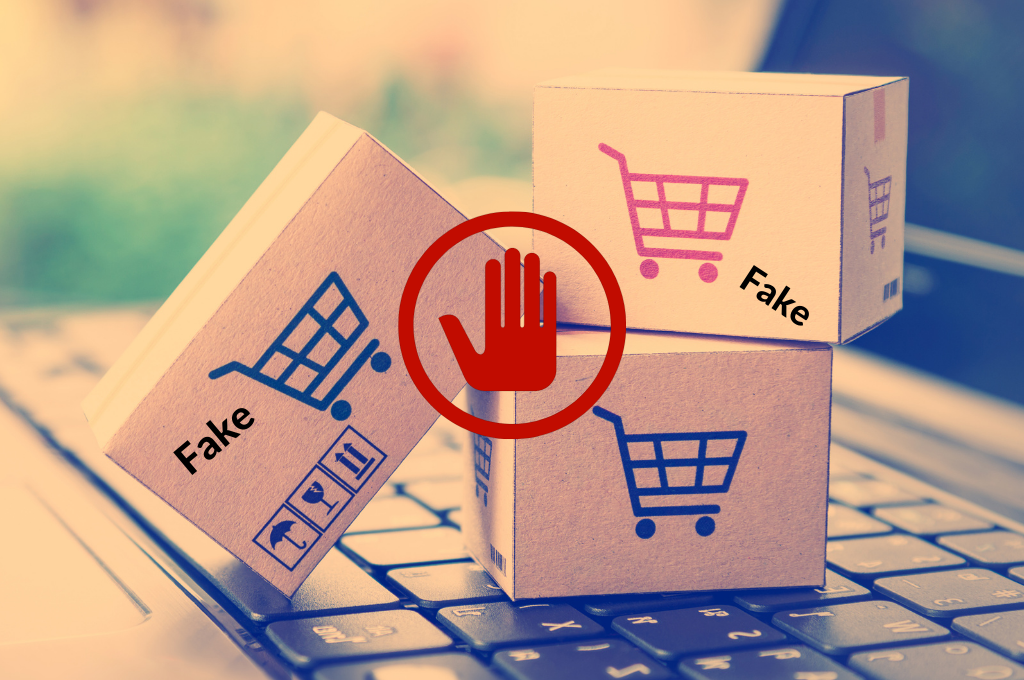The sales of counterfeits must be effectively prevented at every stage of the marketing of goods
During the pandemic, consumers have become more eager to shop in online stores. This has contributed to the development of sales platforms, but also has compounded the existing risks. One of such risks is the purchase of a counterfeit. And it is not only the so-called luxury goods that are more and more frequently counterfeited, the same applies to medicines or medical tests. The products manufactured in the conditions the original manufacturer could not control and which often fail to meet relevant quality and safety standards, may pose a threat to consumers unknowingly purchasing such counterfeits.
By counterfeits we mean goods bearing a trademark without the trademark holder’s knowledge. These also include goods infringing other intellectual property rights, such as proprietary copyrights or rights to industrial designs, utility models and patents.
One of the most effective measures to prevent consumers from purchasing counterfeits to be taken by an entrepreneur is trademark registration. A trademark protection right, obtained upon submission of a relevant application, facilitates effective cooperation with customs offices to detain counterfeits at the border and have them destroyed.
Trade in counterfeits is to be combated not only with the use of legal instruments. Civil and criminal proceedings in connection with the placing of counterfeits on the market are the last stage of such a fight. It is also necessary to seek to detect the attempts to market counterfeit goods, which has been noted by sales platforms, including Amazon. The Brand Protection Report, published by Amazon in May 2021, identifies the actions taken by the company to ensure that buyers only have access to original goods.
The report indicates that Amazon has based its anti-counterfeiting efforts on three strategies.
The first one involves proactive controls to detect attempts to create selling accounts that could be used to trade counterfeits. These measures are based not only on the knowledge of experienced experts, but also artificial intelligence solutions. In 2020, with the use of algorithms, Amazon prevented more than 6 million attempts to create selling accounts and publish more than 10 million products for sale. Over 2 million counterfeits shipped to Amazon’s fulfilment centres were seized and destroyed before being sent to customers.
The second strategy is based on cooperation with brands via a Brand Registry or Project Zero, which have been available for sellers in Poland since May 2021. As part of the Brand Registry, Amazon offers a range of tools to all the brands joining the programmes, including a form to enrol a brand in the Brand Registry, a Report a Violation (RAV) tool, a record of reported IP infringements, automatic blocking of suspicious listings before publishing, a self-service Project Zero tool for removing counterfeits, as well as Brand Registry customer support. According to the data published in the report, for every 1 listing removed by the brand through the self-service listing removal tool, the machine learning-based system prevented 600 other suspicious listings from appearing.
The last strategy consists in Amazon’s cooperation with law enforcement authorities to hold those involved in the marketing of counterfeits accountable. In 2020, Amazon established a Counterfeit Crimes Unit. It is a global team undertaking independent or joint investigations with brands to gather evidence and notify law enforcement authorities or pursue civil litigation against entities or persons selling counterfeits. As part of the actions taken, the Unit has established cooperation with law enforcement agencies and developed a public and private partnership plan to stop counterfeits. The plan underlines the need to strengthen cooperation between sales platforms and law enforcement authorities to improve the exchange of information on those responsible for the marketing of counterfeits.
The data presented in the report and collected by Amazon confirm that the number of counterfeits on the market is increasing rather than decreasing, and so are the risks faced by consumers. The starting point for addressing this situation is the use of legal solutions, conscious brand building and brand protection. However, to effectively combat trade in counterfeits, it is crucial to do it at various levels, at every stage of the marketing of goods and with all interested parties fully involved. The measures described in the report appear to be helpful to the right holders facing the problem of goods infringing their IP rights.
By introducing proactive algorithm-based measures, Amazon seems to be ahead of other online sales platforms, as a prevailing market standard for IP rights holders is still to report listings via a dedicated e-mail address or a simple notification system.
We encourage you to read the full report at: https://brandservices.amazon.com/progressreport and information on the public and private partnership plan at: https://blog.aboutamazon.pl/sprzedaz-na-amazon/plan-partnerstwa-publiczno-prywatnego-w-celu-powstrzymowania-podrobek



